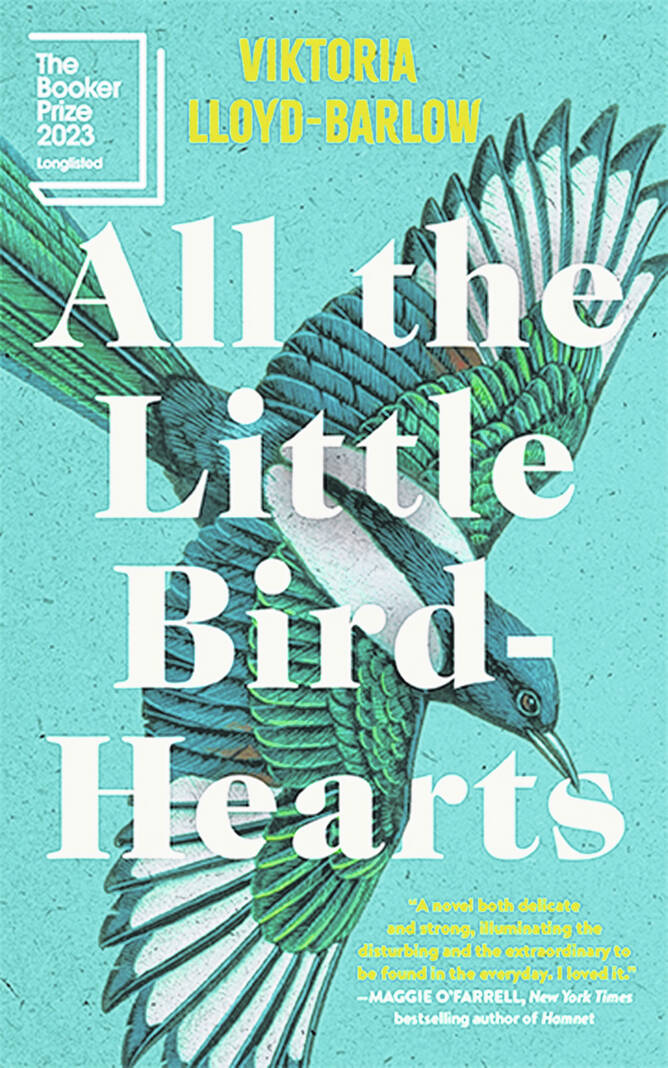Fiction that plumbs the layers of parenthood is vast and crowded; rare’s the novel that stands out. (Recent superb examples include Helen Phillips’ supernatural “The Need,” and Alice McDermott’s Vietnam-era “Absolution.”)
Longlisted for the Booker Prize, Viktoria Lloyd-Barlow’s pitch-perfect, astute “All the Little Bird-Hearts” showcases a narrator virtually invisible on the contemporary stage — an autistic single mother whose naïveté and candor open her to betrayal. The author knows of what she writes; she is autistic.
Sunday Forrester lives in her family home in England’s Lake District, where she cultivates plants at a greenhouse owned by her former in-laws and maneuvers around the mood swings of her teen-aged daughter, Dolly. Sunday’s autism manifests as a lack of affect and acute sensitivity to bright light.
She prefers bland “white” food and “fizzy” champagne (never wine). She relies on an etiquette guide and encyclopedic knowledge of Sicilian folklore to navigate social interactions. She mimics the accents and inflections of others.
During the summer of 1988, before widespread studies of autism spectrum disorder (ASD), Sunday’s next-door neighbor sublets his house to a couple from London: bon vivant Rollo and his glamorous clotheshorse wife, Vita. “She flicked away her second cigarette,” Sunday notes of Vita, “holding her hand in position momentarily after it had landed on the path. The pose put me in mind of an archer whose elbow remained high above his spent bow while he waited to see if he had hit his target.” Their cupidity entrances everyone they meet.
Vita and Rollo have designs on daughter and mother. Each Friday, they host grand dinners, gradually absorbing Dolly into their orbit while shutting out Sunday. Lloyd-Barlow’s pacing is leisurely yet deft; a sense of menace builds. Her prose, too, is textured and exacting as she flashes back to Sunday’s youth and its riddles.
“My father had taken holidaymakers out on his boat early each morning, and he brought the catches back to my mother,” she recalls. “Our little house had smelled permanently of the lake and the shining fish that shivered in my parents’ hands each day. Ma, self-taught, filleted and skinned as expertly as the local women knitted and sewed; her fingers came to know knives as theirs knew needles. Bones as delicate and white as baby teeth regularly littered our kitchen, as though it were the scene of a recent tragedy.”
Despite its wealth of detail, the novel’s an allegory, as the names of the characters — Dolly, King, Dolores — hint. Vita dangles the offer of a new life (“vita nuova”), but only to one woman. Sunday is sanctified and innocent, oblivious to threats and predators masked as friends. A sinister conspiracy looms just beyond her peripheral vision — we recognize it before she does — and yet Lloyd-Barlow surprises us with a final twist of the narrative screw.
“All the Little Bird-Hearts” is a luminous debut from an author whose voice is already her own; Lloyd-Barlow brings us deep into the interior of ASD. As Sunday opines, “It is impossible to know another person’s unspoken wants, and, conversely, to guess at their secret horrors.”







